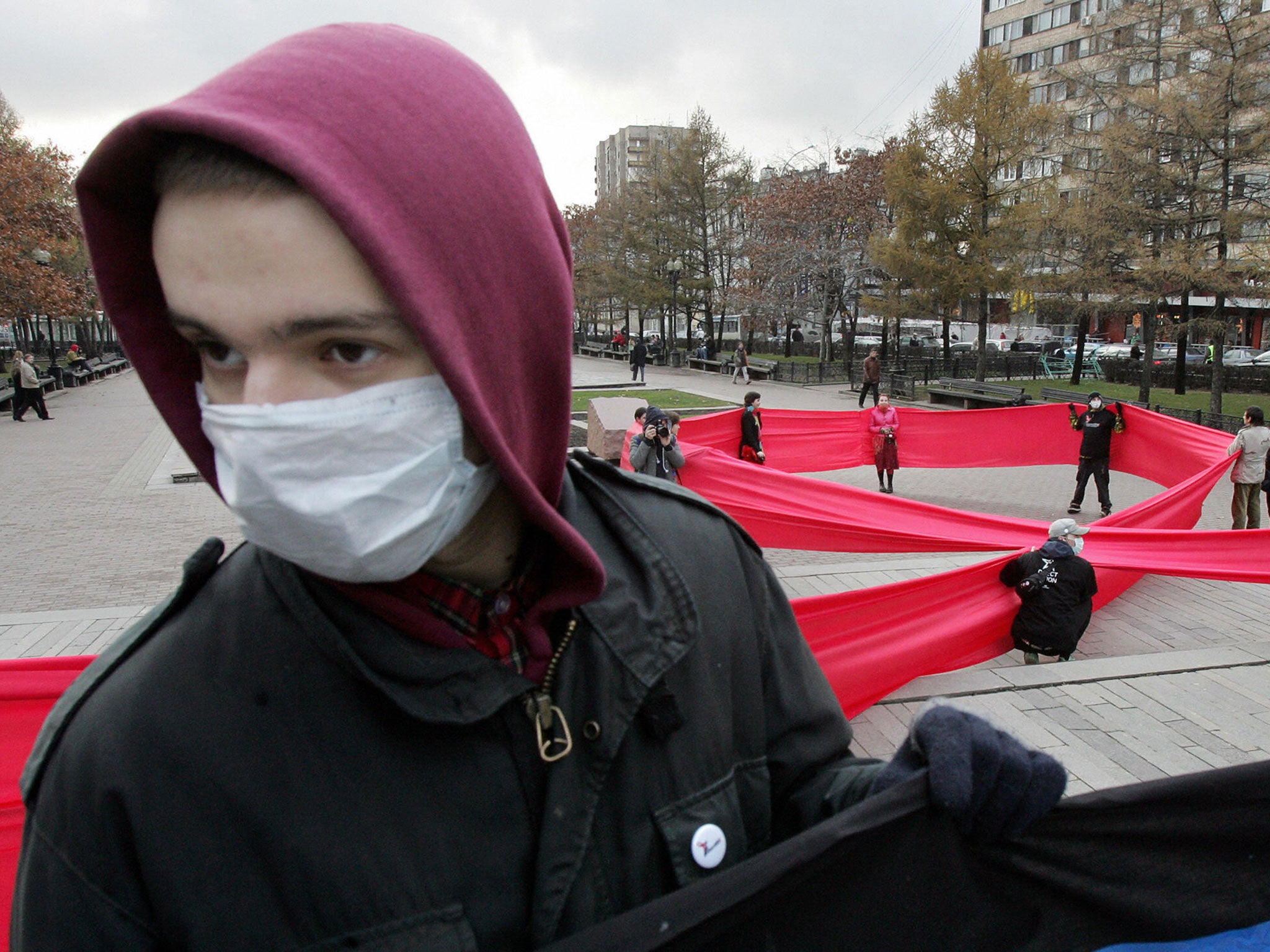Russian HIV cases reach record high of more than a million
And 70 per cent of victims have no access to medication

Your support helps us to tell the story
From reproductive rights to climate change to Big Tech, The Independent is on the ground when the story is developing. Whether it's investigating the financials of Elon Musk's pro-Trump PAC or producing our latest documentary, 'The A Word', which shines a light on the American women fighting for reproductive rights, we know how important it is to parse out the facts from the messaging.
At such a critical moment in US history, we need reporters on the ground. Your donation allows us to keep sending journalists to speak to both sides of the story.
The Independent is trusted by Americans across the entire political spectrum. And unlike many other quality news outlets, we choose not to lock Americans out of our reporting and analysis with paywalls. We believe quality journalism should be available to everyone, paid for by those who can afford it.
Your support makes all the difference.More than a million Russians are now HIV-positive, as rates of infection in the country reach an all-time high.
Vadim Pokrovsky, the head of the Russian state Aids centre and an outspoken critic of the Kremlin's conservative health policies, told Reuters that at at least 1 million and possibly as many as 1.5 million Russians were now HIV-positive.
This means that a little over 1 per cent of Russia's 144,000,000 inhabitants now test positive for the virus, meaning that Russia has more cases of HIV per person than any other European country, save Estonia. By way of contrast, there are only around 100,000 individuals in the UK living with HIV.
“The epidemic is gathering strength," Mr Pokrovsky added. "Unfortunately, the measures that have been taken have clearly not been enough.”
There were 90,000 new cases in Russia in 2014, and the Aids centre further estimate that the number of HIV infections will reach 2 million by 2019. Since Russia's first recorded case of HIV in 1987, around 204,000 people have died as a result of the virus.
57 per cent of Russians infected with the virus acquired it through drug use, with around 20 per cent of the country's large number of known drug users testing positive for the disease. Russia has the largest number of intravenous drug users in the world – 1.8 million of them, according to a 2012 Lancet study.
Only around 30 per cent of Russians diagnosed with HIV currently receive the antriretroviral medication that their bodies need to stop the virus from multiplying.
Mr Pokrovsky told Reuters that he needed at least double the $475,000,000 being offered to him by the Kremlin to fight the disease. However, the Russian economy has been deflated by the collapse in oil prices and the imposition of Western sanctions, and there is likely to be even less public health funding available than before.
As such, Russia is in imminent danger of moving from a "concentrated epidemic" of HIV, with the virus confined to one subset of the population, into a "generalised epidemic", with the virus proliferating throughout wider society.
The Aids expert has criticised the Kremlin's policies as responsible for the HIV/Aids epidemic. Points of concern he has previously highlighted include: the increasing influence of the Orthodox Church, which frowns upon the use of condoms; the criminalisation of the sex trade; a lack of sex education; and a failure to ringfence funds for preventative rather than curative approaches to the disease.
Other issues faced by those seeking to combat the epidemic include the banning of drug replacement therapy for opiod user and the dearth of needle exchanges. In general, the country's repressive approach towards drug users and homosexuals contributes to a stigmatisation of the disease.
For example, Vladimir Putin's banning of "propaganda of non-traditional sexual relations" has had the knock-on effect of making AIDS education literature harder than ever to access.
Join our commenting forum
Join thought-provoking conversations, follow other Independent readers and see their replies
Comments